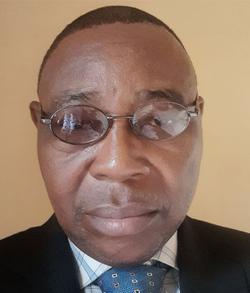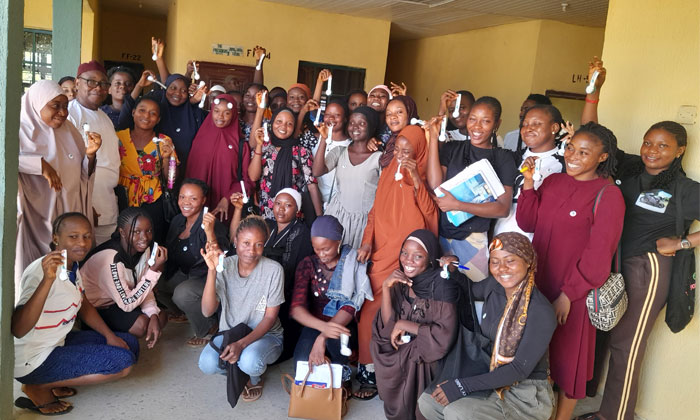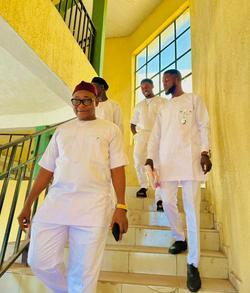Combating the superbug threat – The Federal Polytechnic Idah marks World Antimicrobial Resistance Awareness Week

Antimicrobial resistance (AMR) has emerged as one of the greatest threats to global health. To shine a spotlight on this urgent issue, the Federal Polytechnic Idah hosted a week-long campaign titled ‘Combating the superbug threat: a week of awareness on antimicrobial resistance’, from 18–24 November 2024, as part of World Antimicrobial Awareness Week (WAAW). Funded by the Microbiology Society, this impactful event aimed to educate and inspire the community to join the fight against AMR.
Understanding AMR: a global crisis
Antimicrobial resistance occurs when bacteria, viruses, fungi and parasites evolve and no longer respond to medicines, making infections harder to treat and increasing the risk of disease spread, severe illness and death. Misuse and overuse of antibiotics are key drivers of this crisis.
Recognising the critical role education plays in combating AMR, I, along with researchers and colleagues, organised this awareness week to empower the Federal Polytechnic Idah community with knowledge and practical strategies.
A week of awareness and action
The campaign involved a series of interactive and engaging activities designed to inform and inspire the 350 participants, which included students, staff members and local community stakeholders.
Day 1: launch and community engagement
The event kicked off with a dynamic social media campaign, sharing captivating infographics, videos and testimonials. By the end of the day, the campaign had reached many people, sparking meaningful conversations online.
This was followed by a community forum, where Abdullahi Muritala, Joy Anunobi, Dr Martins Ejembi and I delivered talks on the causes, consequences and prevention of AMR.
In partnership with local pharmacies, informative flyers and posters on antibiotic stewardship were distributed to the community.
Day 2: learning through fun and collaboration
The second day began with a quiz, where students enthusiastically tested their knowledge of AMR. Winners were rewarded with exciting prizes, including branded educational materials.

A panel interview with healthcare professionals, including Dr Martins Ejembi, Dr Daniel Ogala and Dr Reuben Adiyan was a highlight of the day. Their expert insights, shared across social media and a local newspaper, lent credibility to the campaign and sparked further interest.
Measuring impact: did we make a difference?
The campaign's impact was evaluated using several methods, including pre- and post-event surveys, social media analytics and participant feedback. Here’s what we achieved:
- Knowledge gains – participants reported a 70% increase in their understanding of AMR causes, consequences and preventive strategies.
- Behavioral shifts – many attendees pledged to practice proper hand hygiene, complete prescribed antibiotic courses and avoid self-medication.
- Community engagement – over 350 people actively participated in the events, with even more engaging through social media.
- Policy advocacy – early discussions with local policymakers showed promise for future AMR-focused programmes.

The road ahead
The success of this campaign proves that collective action can make a significant difference in tackling AMR. However, this is just the beginning. AMR is a global challenge that requires a sustained effort.
We aim to:
- Expand the campaign to include more community members and institutions.
- Host hands-on workshops focusing on infection prevention and alternative treatments.
- Strengthen advocacy efforts to push for robust policies addressing AMR.
As we reflect on the success of this initiative, we thank all participants, partners and sponsors for their invaluable contributions. Together, we have taken an important step in combating the superbug threat.
Let’s keep the momentum going. The fight against AMR is far from over, but with informed communities and collaborative efforts, we can make a lasting impact.
All of the blogs in this series are listed together via our WAAW 2024 blog listings and you can also find out more about the Society's AMR work via our Knocking Our AMR webpages.
